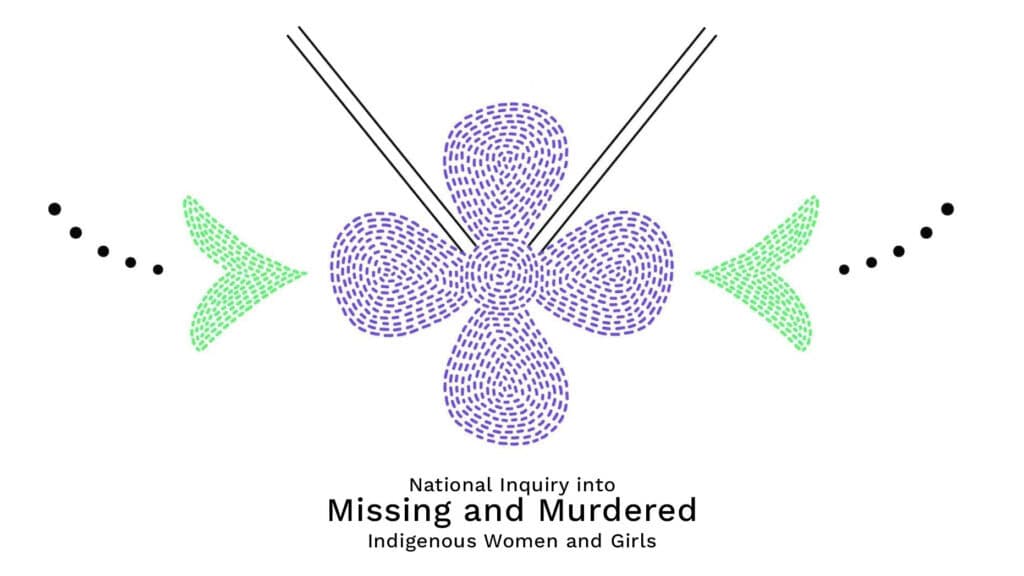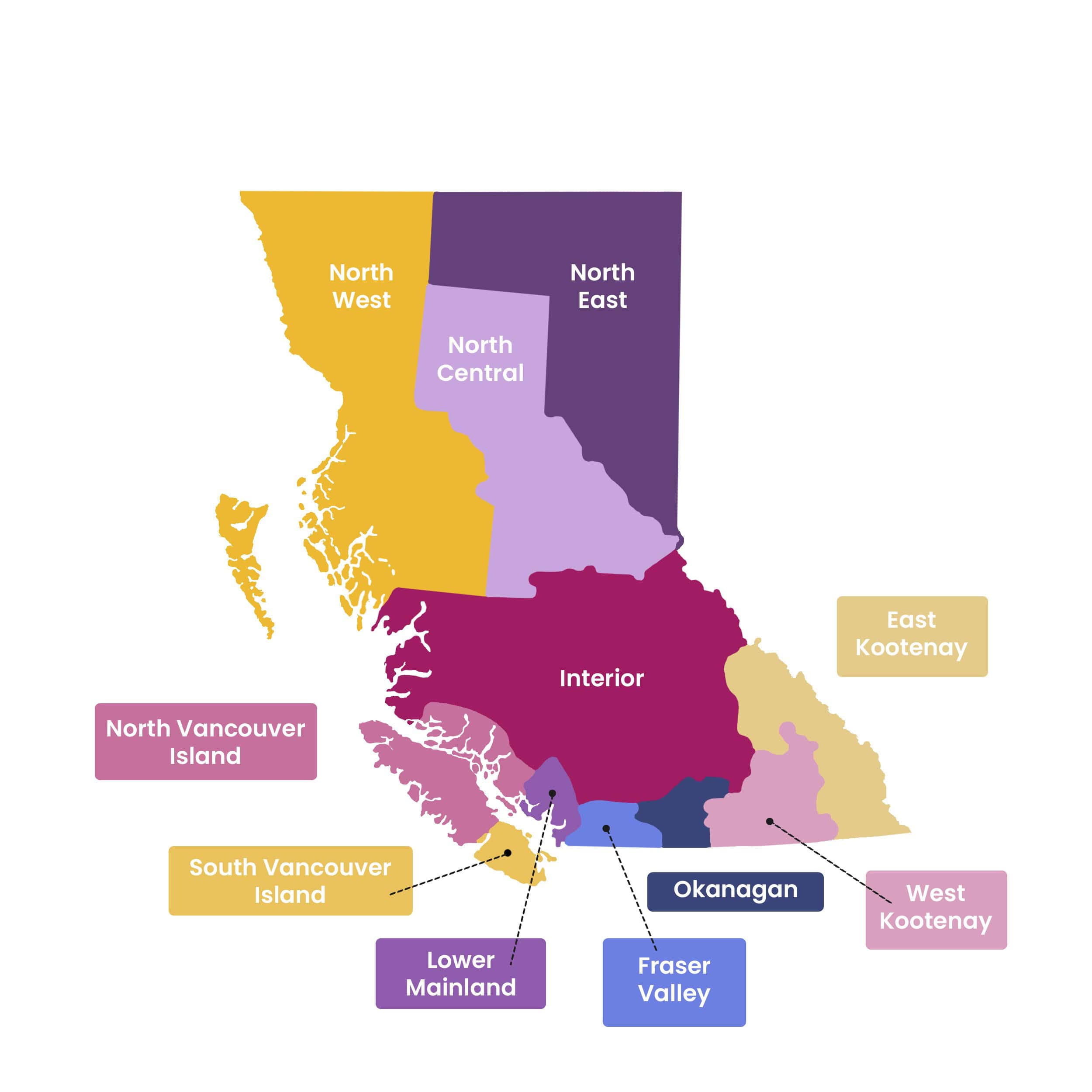

Our commitment to reconciliation
We stand for Truth and Reconciliation and commit to addressing the Calls to Action made by the Truth and Reconciliation Commission of Canada. We support and advocate for the Calls for Justice from the final report of the National Inquiry into Missing and Murdered Indigenous Women and Girls.
From ReachOut newsletter February 2025
Calls to Action
Reform and reconciliation in policing
Reconciliation requires constructive action to address the ongoing legacies of colonialism (See Principle 4 from the Truth and Reconciliation Commission of Canada Report). A critical focus of this effort must be on the disproportionate harms experienced by Indigenous peoples, including women, girls, and 2SLGBTQQIA+ individuals in their interactions with police.
The devastating impact on Indigenous women, girls, and 2SLGBTQQIA+ people
Indigenous women, girls, and 2SLGBTQQIA+ people are overrepresented as victims of crime and over-incarcerated in Canada’s prison system. They experience disproportionately harmful impacts from the criminal justice system due to biased policing, racial profiling, and inconsistent applications of the Gladue Principles. The Missing and Murdered Indigenous Women, Girls, and 2 Spirit (MMIWG2S+) crisis underscores the urgent need for change as Indigenous women account for 50% of the total federal female inmate population despite only representing 4% of women in Canada.
Gender-based violence and policing
The Indigenous Women’s Justice Plan (IWJP), developed by the BC First Nations Justice Council (BCFNJC), seeks to address these issues by ending colonial practices and policies that negatively impact Indigenous women, girls, and 2SLGBTQQIA+ people.
This includes developing an Indigenous Women, Girls and 2 Spirit (2s+) Peoples’ justice plan to respond to the 231 Calls for Justice and other key reports and recommendations. They prioritize and highlight the need to work with First Nations and Indigenous groups to implement solutions to discriminatory policies, and by addressing issues like biased policing, racial profiling, and the lack of culturally appropriate supports for survivors of violence. This is all whilst including the perspectives of 2SLGBTQQIA+ individuals in the development of justice strategies.
Call to action: justice reform
The BCFNJC has highlighted the actions below as necessary in order to address the ongoing legacies of colonialism and the destructive impacts on Indigenous peoples, specifically concerning the administration of justice:
- Create alternative pathways for Indigenous women, girls, and 2SLGBTQQIA+ individuals, prioritizing culturally grounded, Indigenous-led programs and services that focus on healing and family unification.
- Expand Gladue principles to ensure that the unique circumstances of Indigenous women, girls, and 2SLGBTQQIA+ people are considered at all stages of the legal process, including family law and child welfare.
- Amend the current policing system to include an Independent Indigenous-led Investigative Body, and a screening and training process for policing that includes an in-depth cultural education and learnings on historical relationships between RCMP and Indigenous peoples.
- Reform the justice system to create a trauma-informed and culturally safe process that does not perpetuate harm for victims and families with community-led safety services.
- Reallocate public safety funds to community-based justice programming that provides culturally grounded and trauma-informed care, shifting away from a reliance on policing.
- Increase access to First Nations’ Courts and ensure that these courts are grounded in traditional justice practices and led by Elders.
Several initiatives are underway to address some of the issues outlined above:
- Indigenous-led oversight: An Indigenous-led oversight team will oversee the responsibilities of accountability measures and enforce culturally safe guidelines.
- Indigenous Justice Centres (IJCs): These centres provide services to Indigenous women, girls, and 2SLGBTQQIA+ people, increasing access to justice and providing support with navigating legal processes.
- BC’s Office of the Human Rights Commissioner: In 2024 this office launched an inquiry into the use of force by police against racialized people and people with mental health issues in BC. The inquiry builds on the Commissioner’s 2021 report, Equity is Safer, which revealed a disturbing pattern of discrimination in policing in the province.
- Community-led safety services: Nation-based accountability measures will increase the authority of community-led safety services such as Peacekeepers and Community Safety Officers (CSOs).
- Independent Indigenous-led investigative body: This body will have the authority to receive complaints, oversee the conduct of all police forces in BC, and publicize police misconduct.
- RCMP Race-Based Data Collection Initiative: This initiative collects data to identify and address systemic biases in policing interactions, particularly for Indigenous, Black, and other racialized groups. Pilot projects are underway to analyze outcomes of police-public interactions related to use of force, wellness checks, and arrests.
- Policing and Public Safety Modernization Initiative: This initiative aims to transform policing in BC by addressing systemic racism and shifting police culture through engagement with Indigenous partners, communities and advocacy groups.
In December 2024, the Assembly of First Nations (AFN) called for a ”national Inquiry into systemic racism in policing, to be led by First Nations Commissioners.” This inquiry aims to investigate police-related deaths and serious incidents, as well as systemic racism in law enforcement. The goal is to develop culturally informed recommendations that address root causes and drive reform. As stated by AFN National Chief Cindy Woodhouse Nepinak, ”systemic racism in policing continues to result in the loss of First Nations’ lives, an inquiry led by First Nations, grounded in our cultural practices and a trauma-informed approach, is essential to develop effective solutions that protect the rights and safety of our people.”
Moving forward: a path to reconciliation
Meaningful change requires a multi-faceted approach that includes policy reform, community engagement, and the revitalization and incorporation of Indigenous justice systems. It is essential to recognize the unique challenges faced by Indigenous women, girls, and 2SLGBTQQIA+ individuals, and to develop solutions that are culturally relevant, and trauma-informed. The work of the BCFNJC and the AFN highlight the need for action, transparency and accountability. Prioritizing these efforts can move Canada closer to achieving true reconciliation and ensuring that all Indigenous peoples are safe and respected within their communities, further reducing the current rates of GBV amongst Indigenous peoples. s
Calls for Justice
Taking action to protect Indigenous women, girls and 2SLGBTQQIA+ people from the impacts of resource extraction and development
In Canada, the resource sector employs approximately two million people and supports the economies of more than 900 communities. Resource development projects exacerbate gender-based violence against Indigenous people by non-Indigenous men and within Indigenous communities. The National Inquiry into Missing and Murdered Indigenous Women and Girls identified several factors that contribute to the higher risk of violence including: transient workers that live in work camps, harassment and sexual assault in the workplace, and economic insecurity.
Work camps are the temporary accommodation facilities that the resource development industry relies on to house a transient workforce until a project is complete. These camps predominantly exist in remote areas on or near Indigenous peoples’ lands and are associated with higher rates of crime and violence at the camps and in neighbouring communities, including the physical and sexual assault of Indigenous women, girls and 2SLGBTQQIA+ people. There are many contributing factors for the increased risk of gender-based violence including:
- The migration of mostly non-Indigenous young men with high salaries and little to no stake in the host Indigenous community.
- The increased consumption of alcohol and drugs.
- The social isolation of work camps.
- The disconnection of workers from local communities i.e., a lack of social or family ties.
Indigenous women who work in the resource sector are frequently exposed to racism, sexual harassment and abuse. Workplace stress, lack of access to help (i.e., police may take hours to respond), need to travel to and from work sites and camps, and shared insecure and informal accommodation with male employees contributes to the risk of violence.
The increase in economic insecurity for Indigenous women has been linked to the resource sector. Rotational work schedules make it challenging for many women with children to maintain employment. Indigenous women who work in the resource sector are often limited to relatively low-paying jobs in housekeeping, cleaning, and food services. At the same time, the growth in population associated with resource development can lead to high rates of inflation and housing shortages which can make it difficult to leave violent relationships or unsafe situations. The use and contamination of lands and waters by the resource development industry affects Indigenous peoples’ ability to practice and teach their culture and spirituality; it can also negatively impact their livelihoods and food security.
The way forward
Reclaiming Power and Place: The Final Report of the National Inquiry into Missing and Murdered Indigenous Women and Girls (See Calls for Justice 13.1 to 13.5) was the first of many reports that identified actions that need to be taken by resource development companies to mitigate their impacts on the safety and security of Indigenous women, girls and 2SLGBTQQIA+ people, including:
- Seek free, prior and informed consent from Indigenous communities near resource development projects.
- Consult with Indigenous women, girls and 2SLGBTQQIA+ people on project negotiations, implementation, monitoring, and developing Impact Benefit Agreements in a trauma-informed and meaningful way.
- Implement mitigation measures, policies, protocols, codes of conduct, and grievance mechanisms to address sexual harassment and violence.
- Deliver Indigenous cultural resources and training.
- Increase Indigenous women, girls and 2SLGBTQQIA+ representation in the industry, including in human resources, management, and supervisory roles.
- Provide wraparound survivor supports and services for survivors of violence including housing and transportation.
Indigenous, industry and government action
In 2024, the Circle for Missing and Murdered Indigenous Women, Girls and Gender Diverse People (MMIWG2S+) and Resource Development was established to enable collaborative work and progress on the Calls for Justice 13.1 to 13.5 which call upon resource extraction and development industries to consider the safety and security of Indigenous women, girls, and 2SLGBTQQIA people in all aspects of a project. The Circle was co-developed by the Socioeconomic and Marine Shipping Subcommittees for the Indigenous Advisory and Monitoring Committee for the Trans Mountain Expansion and Existing Pipeline (IAMC-TMX); it includes MMIWG2S+ grassroots advocates at the forefront of taking action on gender and race-based violence.
Zoe Craig-Sparrow, IAMC-TMX Socioeconomic Subcommittee Member, Justice for Girls said “Indigenous women and girls have been subjected to violence and displacement in the interest of natural resource development since colonization. The National Inquiry into MMIWG2S+ could not be more clear: urgent action must be taken to address the connections between MMIWG2S+ and the resource extraction and development industry. As a member of the new Circle, I will honour and build on the work of the generations of Indigenous matriarchs, advocates, and land protectors who came before me to continue the fight for the meaningful justice our people and our stolen sisters deserve. But to be successful, this work requires the funding, commitment, and political will from federal leaders.”
The BC Government has also taken steps to introduce mechanisms for oversight, enforcement and monitoring to improve health and safety at or near work camps:
- The Environmental Assessment Office is developing a Gender-Based Violence (GBV) Policy Framework, which will include a suite of policies, guidance, tools and training to address and mitigate GBV in the natural resource and industrial project sectors. A key component of the Framework is the requirement for all future resource development projects with industrial camps to develop a gender and cultural safety plan to enhance the security and well-being of women, girls and 2SLGTBQQIA+ individuals residing or working in nearby communities.
- The Focus Project, a multi-year Ministry of Public Safety and Solicitor General initiative, was launched in January 2021 to better understand and document the impacts of pipeline construction activities on service utilization and demand. Focus Project findings will support the Environmental Assessment Office’s work to develop future training and oversight.
For more information, see Responding to the Calls for Justice: Addressing Violence Against Indigenous Women and Girls in the Context of Resource Development Projects and Impact Assessment & MMIWG Calls for Justice.

